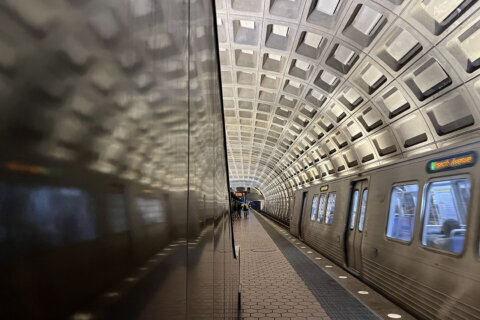The final new 7000 Series cars arrived Wednesday at Metro’s Greenbelt Rail Yard in Maryland.
Cars 7746 and 7747 complete the 748 car “new train” fleet and will bring the total proportion of new cars to nearly 60% once testing and commissioning is completed over the next eight weeks or so.
The cars took a five-day, 1,200-mile ride on a flatbed truck from the factory in Nebraska before protective tarps could be pulled off Wednesday by crews from car builder Kawasaki, and the cars rolled off onto the tracks into Metro’s hands.
“It’s kind of bittersweet. It’s happy, because it also showed a glimpse of the beginning of the rebuilding of Metro, and what could be possible … but also a little sad when you’ve worked on a project this long and you see it come to a close,” said Metro chief of external relations Barbara Richardson.
She called it a historic day that nearly caps off the 10-year process of bringing in all the new trains.
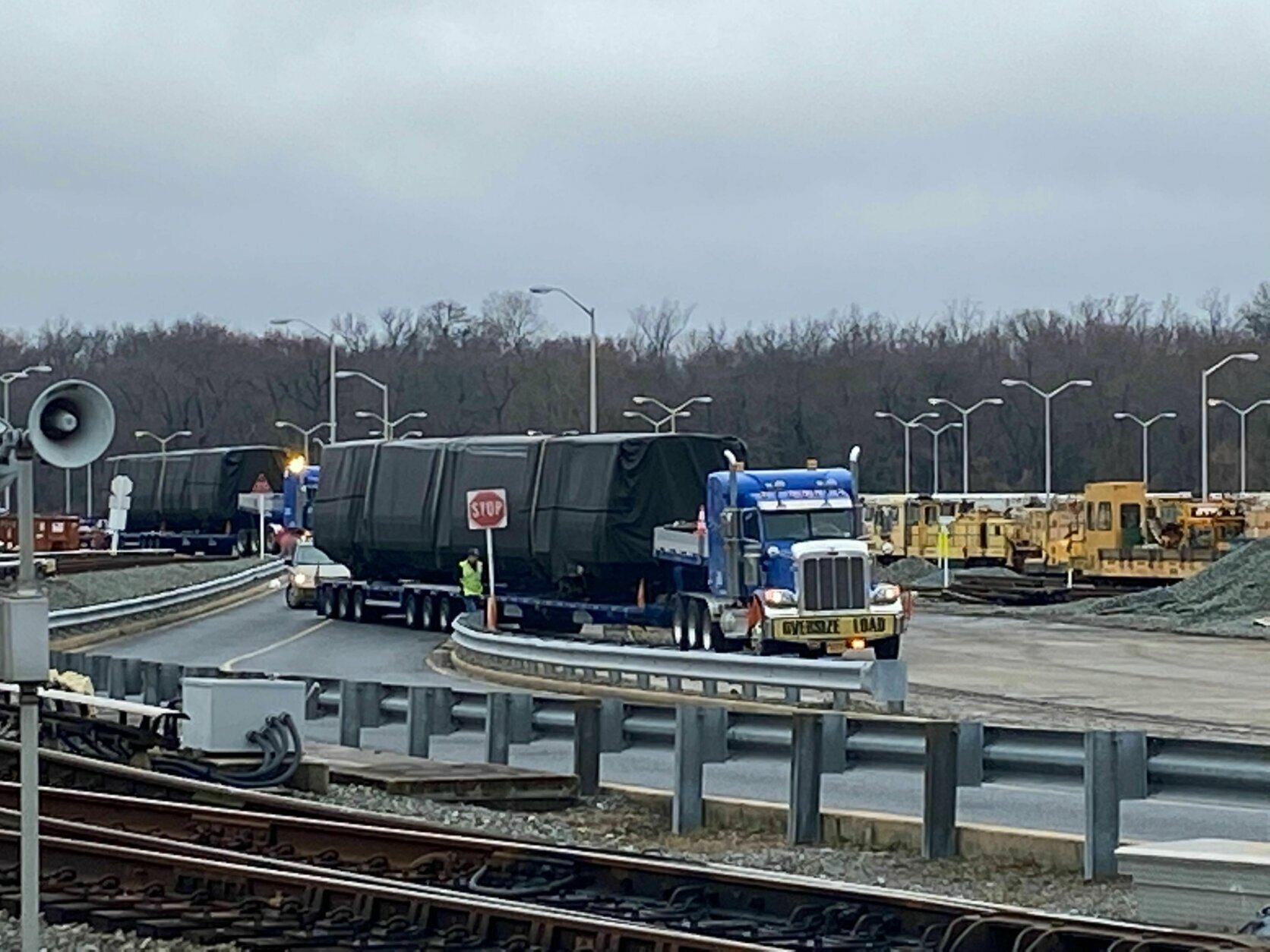
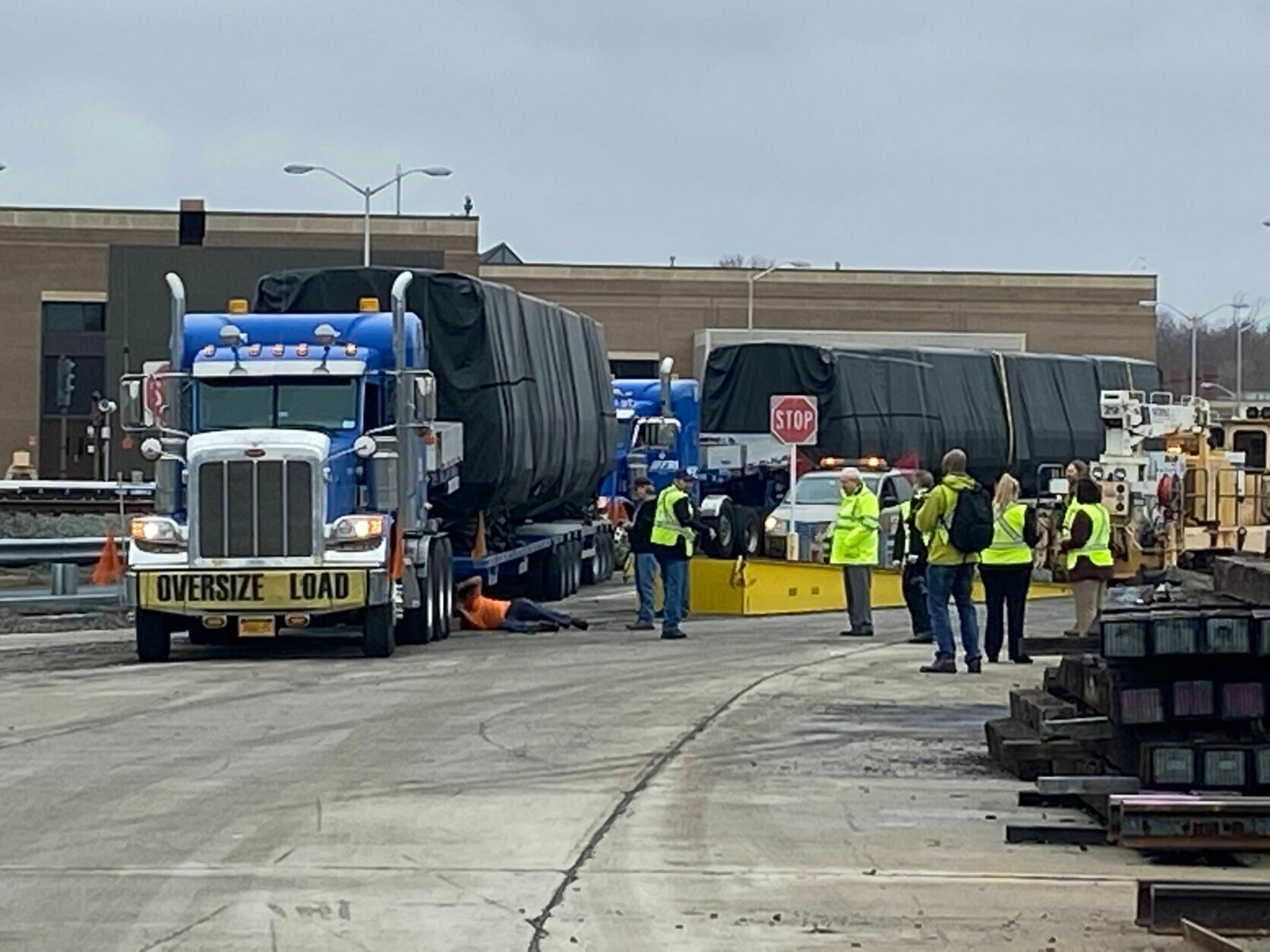
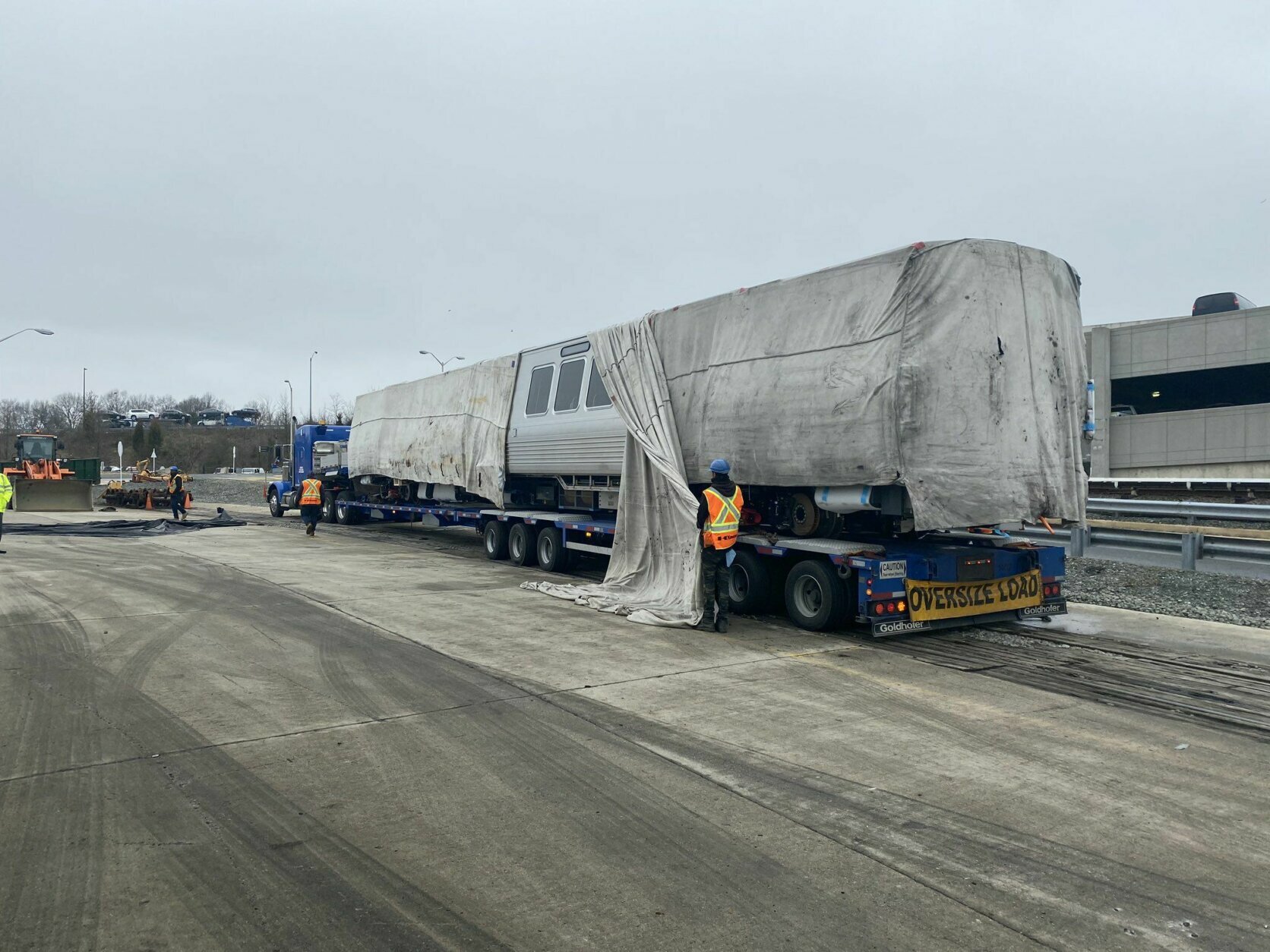
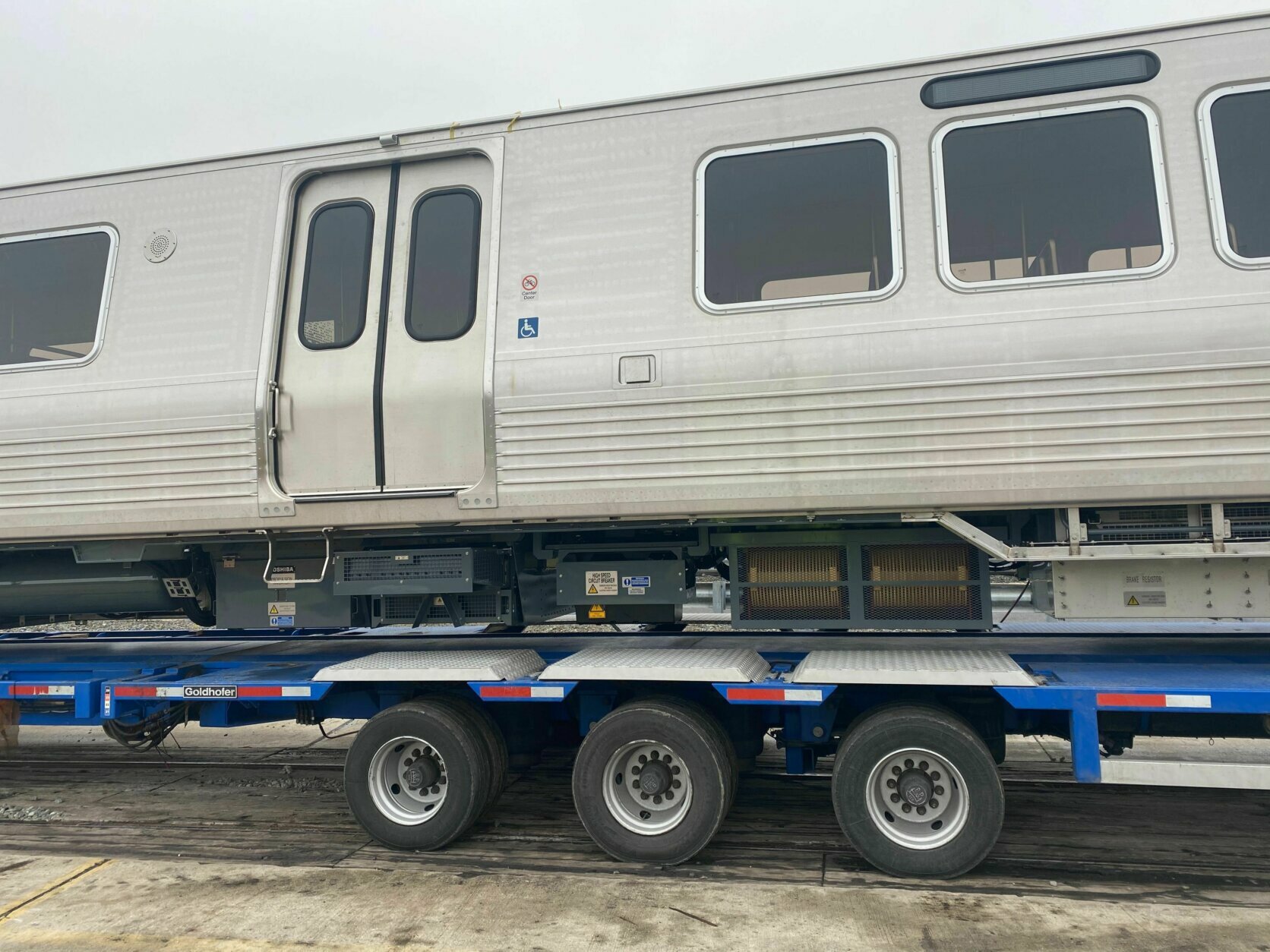
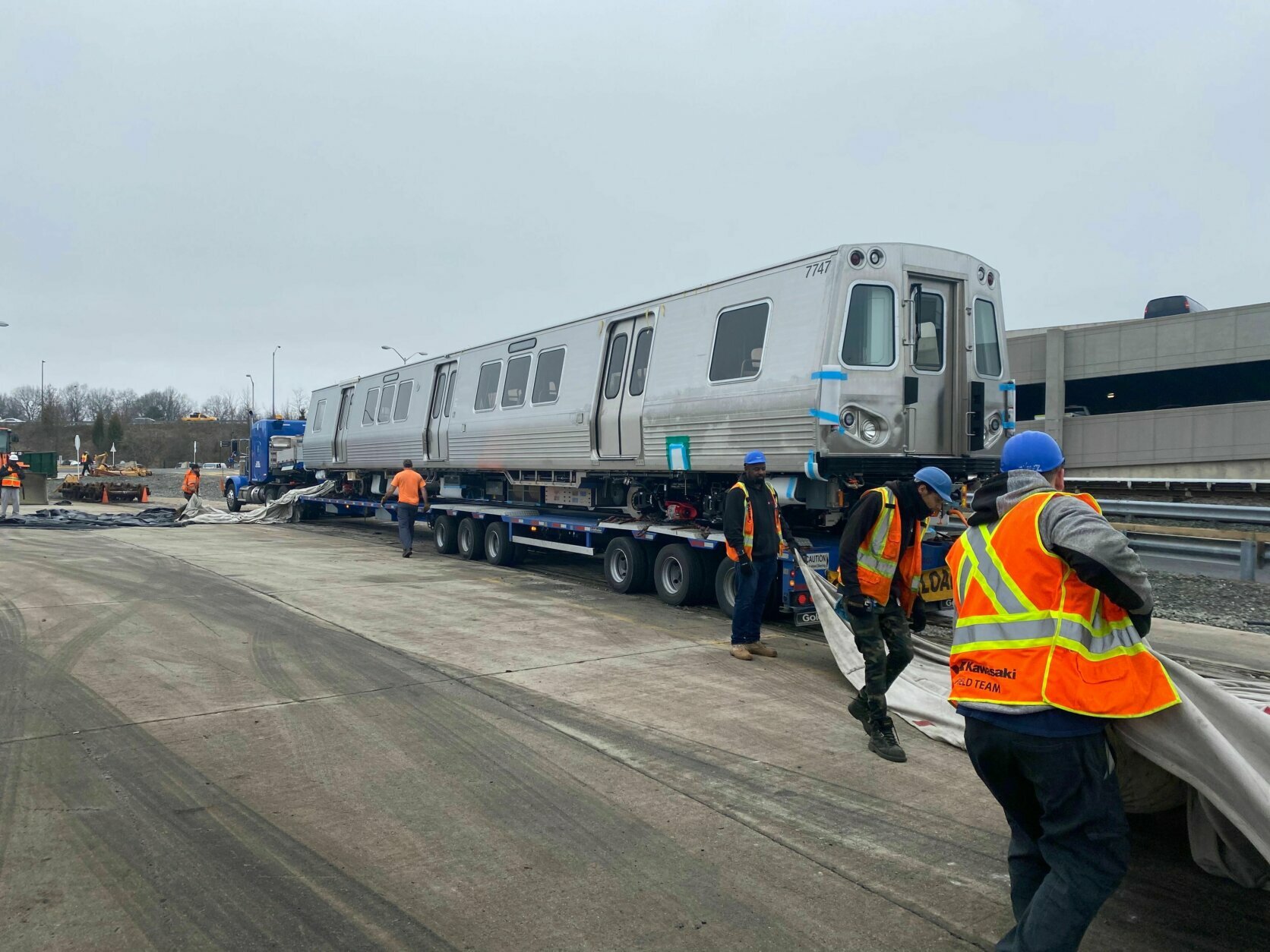
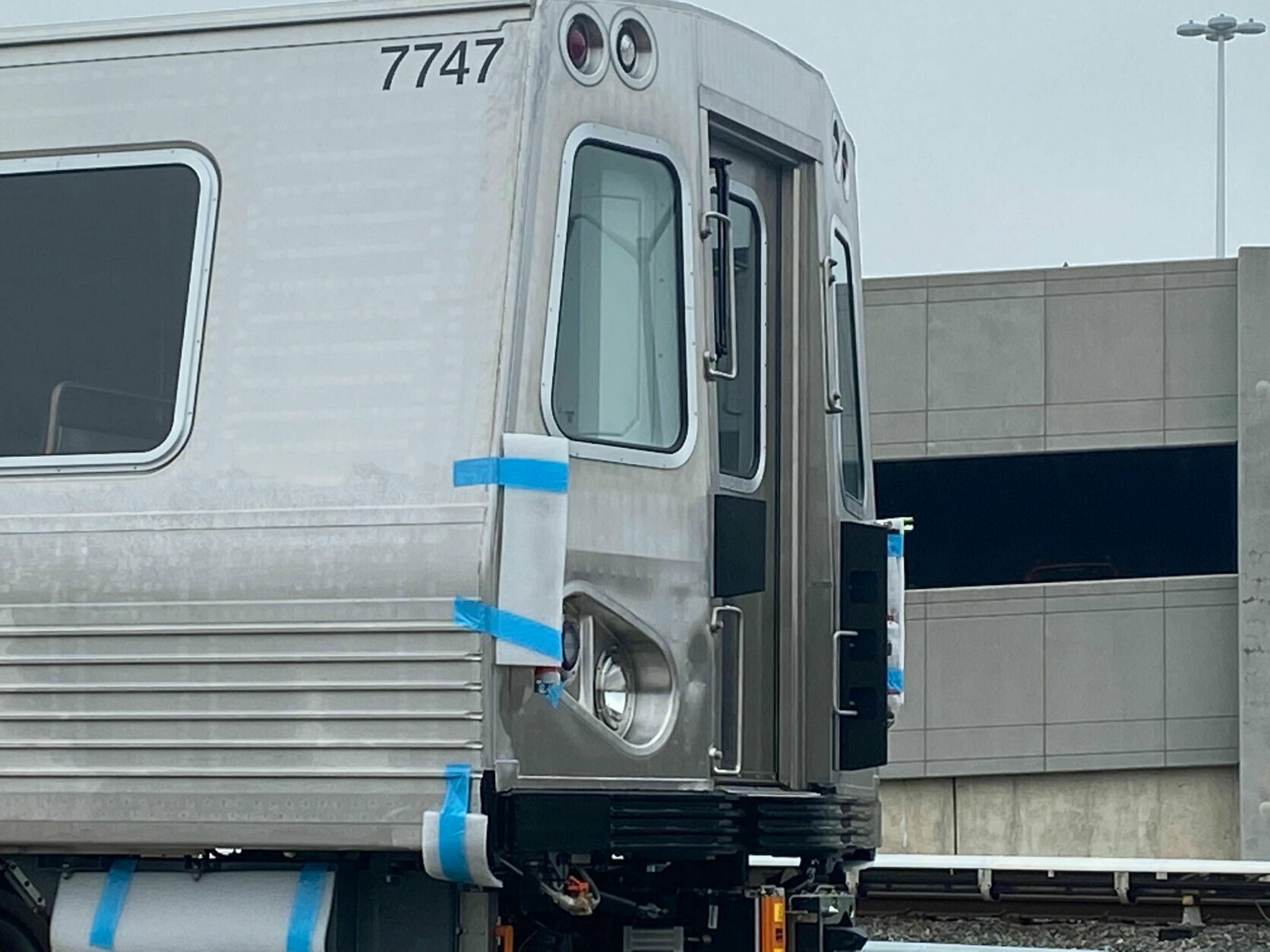
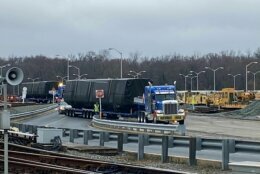
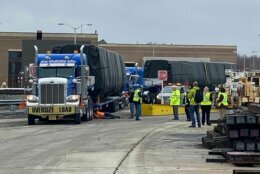
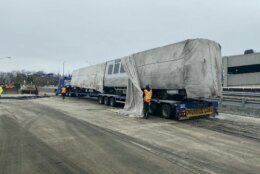
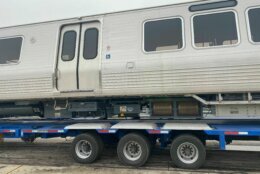
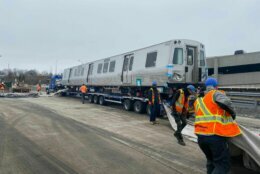
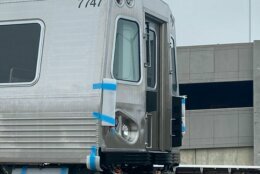
Right now, 716 of the 748 7000 Series cars are already active and carrying riders. Metro said the cars are making a big difference in reducing delays, including with more than 441,000 miles traveled on average in January between breakdowns that caused a significant delay for riders.
Metro’s older rail cars break down more frequently.
Though riders think of these as new trains, the very first set of 7000 Series cars are now about 5 years old. The newer versions of the cars have improvements from the older ones.
The age means Metro already has to do maintenance on the cars, including a need to replace a few thousand damaged seats and panels.
“It’s a constant cycle,” Richardson said.
Metro’s next new train car order is expected to be finalized within the next year.
The 8000 Series rail cars are expected to start arriving in four to five years to replace Metro’s oldest currently active rail cars, and to potentially expand Metro’s rail fleet.
The designs are expected to be similar to the 7000 Series, with some additional signage, updated technology and more places for standing riders to hold on.
The 7000 Series cars cost Metro about $2 million on average; the cost of the 8000 Series will depend on the outcome of an ongoing contractor selection and negotiation process.
Metro rail cars are supposed to last about 40 years, as long as the transit system does a required midlife overhaul.

